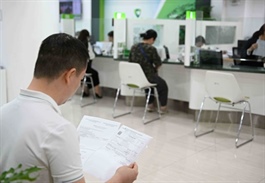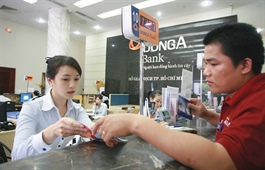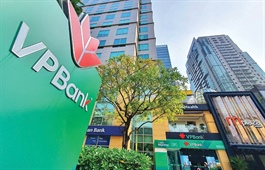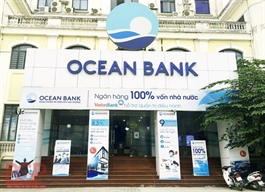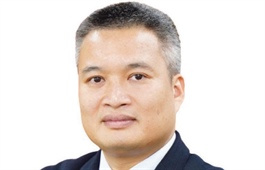Preventing downturn the nucleus of reform
Preventing downturn the nucleus of reform
Banks are racing to increase capital to match the new regulations on the minimum capital adequacy ratio, and meet conditions for cash dividend payments.
The State Bank of Vietnam (SBV) is collecting feedback on a draft circular on the capital adequacy ratio (CAR) for commercial banks and foreign bank branches, which proposes increasing the minimum CAR for commercial banks with a roadmap to reach 10.5 per cent by 2033, up from the current 8 per cent.
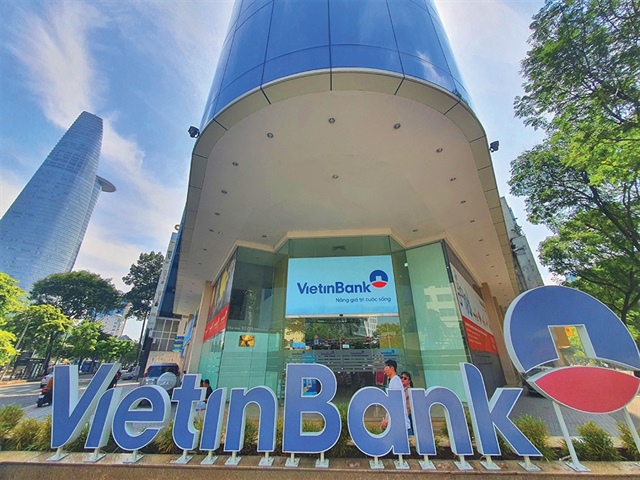
Some state-owned commercial banks, such as VietinBank, have a 10 per cent capital adequacy ratio |
The plan ensures a minimum tier 1 capital of 6 per cent, including core capital of 4.5 per cent. The total of tier 1 and tier 2 capital will be 8 per cent, and the capital preservation buffer is set at 2.5 per cent.
The SBV said the capital conservation buffer (CCoB) would be used to prevent economic downturns. This ratio is flexible during each period, with a fluctuation range of 0-2.5 per cent. It will be higher during periods of market overheating and lower during stable conditions.
The draft circular also notes that if commercial banks fail to meet the minimum CAR of 8 per cent, they will not be allowed to pay cash dividends. In cases where banks do not meet the minimum CAR and the CCoB in a financial year, these commercial banks and foreign bank branches may only use undistributed profits to pay cash dividends at a maximum rate of 20-80 per cent. Banks can use all profits to pay cash dividends only when they meet the minimum CAR and CCoB.
Vo Quoc Khanh, deputy general director of Financial Services and Banking Consulting at EY Vietnam said, “This aims to comply with Basel III standards, requiring banks to have a buffer before violating the minimum CAR so that supervisory agencies have time to act before an actual failure event occurs.”
Adding capital to the CCoB will enable banks to have sufficient reserves during periods of rapid growth and offset capital declines during crises. “Once the SBV abolishes the credit room mechanism, the regulation on CCoB of commercial banks will become critical,” Khanh said.
Can Van Luc, chief economist of BIDV, believes that compliance with Basel III will add pressure on banks to increase capital in the coming period, especially for the big four banks.
“Currently, the process and procedures for increasing capital at the ‘big four’ banks are too cumbersome. Allowing a long-term mechanism for these banks to retain profits for capital increase is very necessary,” Luc said.
According to VPS Securities, as of June 30, 2024, the highest CAR of 14-16 per cent belongs to private joint stock commercial banks that recently conducted large capital increases, such as VPBank, Techcombank, SeABank, HDBank, and OCB.
State-owned joint stock commercial banks such as VietinBank and BIDV have CARs of nearly 10 per cent, while Vietcombank has a CAR of 12 per cent. Compared to the same period last year, only five of 18 banks reported a decrease in CAR by 0.21-1.01 per cent, while most saw an increase of 0.14-1.71 per cent.
Raising the ratio will enable commercial banks to accelerate the increase in their charter capital to meet requirements. At the end of November, the National Assembly (NA) decided to inject additional state capital into Vietcombank. Consequently, Vietcombank will be able to pay dividends in shares at a 49.5 per cent to increase its charter capital by an additional $1.13 billion.
Vietcombank’s current charter capital is $2.28 billion. After issuing additional capital as per the plan approved by the NA, its charter capital will rise to $3.41 billion, the highest among credit institutions. The next largest banks are VPBank ($3.24 billion) and Techcombank ($2.87 billion).
Among state-owned banks, BIDV has announced a resolution approving a plan to increase charter capital through share issuance to pay dividends at a rate of 21 per cent. The additional capital will be sourced from the remaining profit after setting aside funds in 2022.
Under the plan, BIDV will issue more than 1.19 billion new shares, equivalent to additional capital of over $488.6 million. This will raise BIDV’s charter capital to $2.8 billion. The expected implementation is scheduled for this month or the first quarter of 2025.
In the private-owned bank group, capital increase plans are also being actively implemented. HDBank has approved a plan to pay dividends in shares to raise charter capital. The bank will issue 582.5 million shares to pay dividends at an exercise rate of 20 per cent, with a total issuance value at par of $238 million.
At last month’s extraordinary general meeting, LPBank shareholders approved increasing charter capital via share issuance to pay dividends at 16.8 per cent. Moreover, VietBank plans to raise its capital to $291.4 million, BAC A BANK to $430 million, and TPBank to $1.1 billion.








